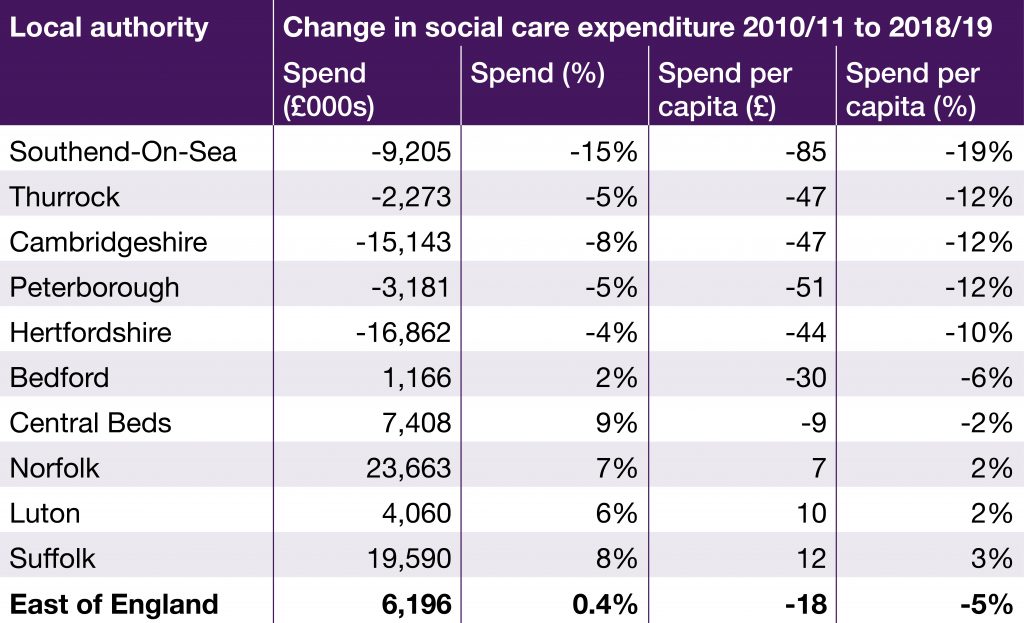New TUC research showing that seven in 10 councils in the East of England are spending less per capita on adult social care than 2010 shows we “can’t wait any longer” for a national care system, UNISON Eastern says today.
The TUC report, Fixing Social Care shows that overall social care spending per head across England in 2018-19 was 8% below its level in 2010 in real terms.
In the East of England, it’s 5% down, with the biggest drop in Southend-On-Sea (-19%), followed by Thurrock, Cambridgeshire and Peterborough (-12% for all three).
Responsibility for delivering social care sits with local government, but the policy and funding framework is set by central government.
In his first speech as Prime Minister, Boris Johnson promised to “fix the crisis in social care once and for all.” But he’s still not set out any plans.
UNISON Eastern regional secretary Tim Roberts said: “Chronic underfunding of the care sector has been a huge problem for many years. It shouldn’t have taken a devastating pandemic for politicians to realise this.
“Despite real-terms funding increases in some councils in eastern England, the cash isn’t keeping up with demand, leaving vulnerable people with lower quality services and doing nothing to address poverty wages for hard working care workers.
“As the union for social care, UNISON is calling for a national care service that’s fully funded, values care staff and is free for those who need it.
“And after repeated failure by successive governments to get a grip of reforming the sector, we can’t wait any longer.”
UNISON has laid out its plans for a national care service in its report Care after Covid.
Today’s TUC report, Fixing social care: better quality services and jobs, sets out why the UK does not have a high quality social care system, and how to improve it for those who use it, and those who work in it.
Social care in England has insufficient funding to meet demand, the TUC report shows, which forces councils to tighten eligibility and people to rely on informal care from family and friends. It will be unable to meet future demand from a 49% increase in those aged 65+ by 2040.
Most care homes are run privately for profit. This directs public funds away from service users and squeezes pay and conditions for staff. Almost a quarter of social care staff have a zero-hours contract and 7 in 10 are paid less than £10 per hour. The sector has around 120,000 unfilled vacancies and an annual staff turnover rate of 31%.

TUC London, Eastern and South Eastern regional secretary Sam Gurney said: “When communities in the East of England needed them, our social care workers stepped up. Care workers looked after older and disabled people in the midst of a pandemic, often without the right PPE, and often for low wages and no sick pay.
“Now it’s time to fix the broken system. Social care is badly underfunded. Pay and conditions for care workers are dreadful. And families can’t be sure of high-quality, affordable care when a family member needs it.
“As we face mass unemployment, ministers should act to unlock the 120,000 existing social care vacancies right now. And they should put investment in social care at the heart of our national recovery plan.
“Social care jobs should be decent jobs on fair pay, at the heart of every community in the East of England. The TUC’s plan sets out how a full funding settlement for social care would work. Ministers can’t spend another decade hiding from the social care crisis.”


